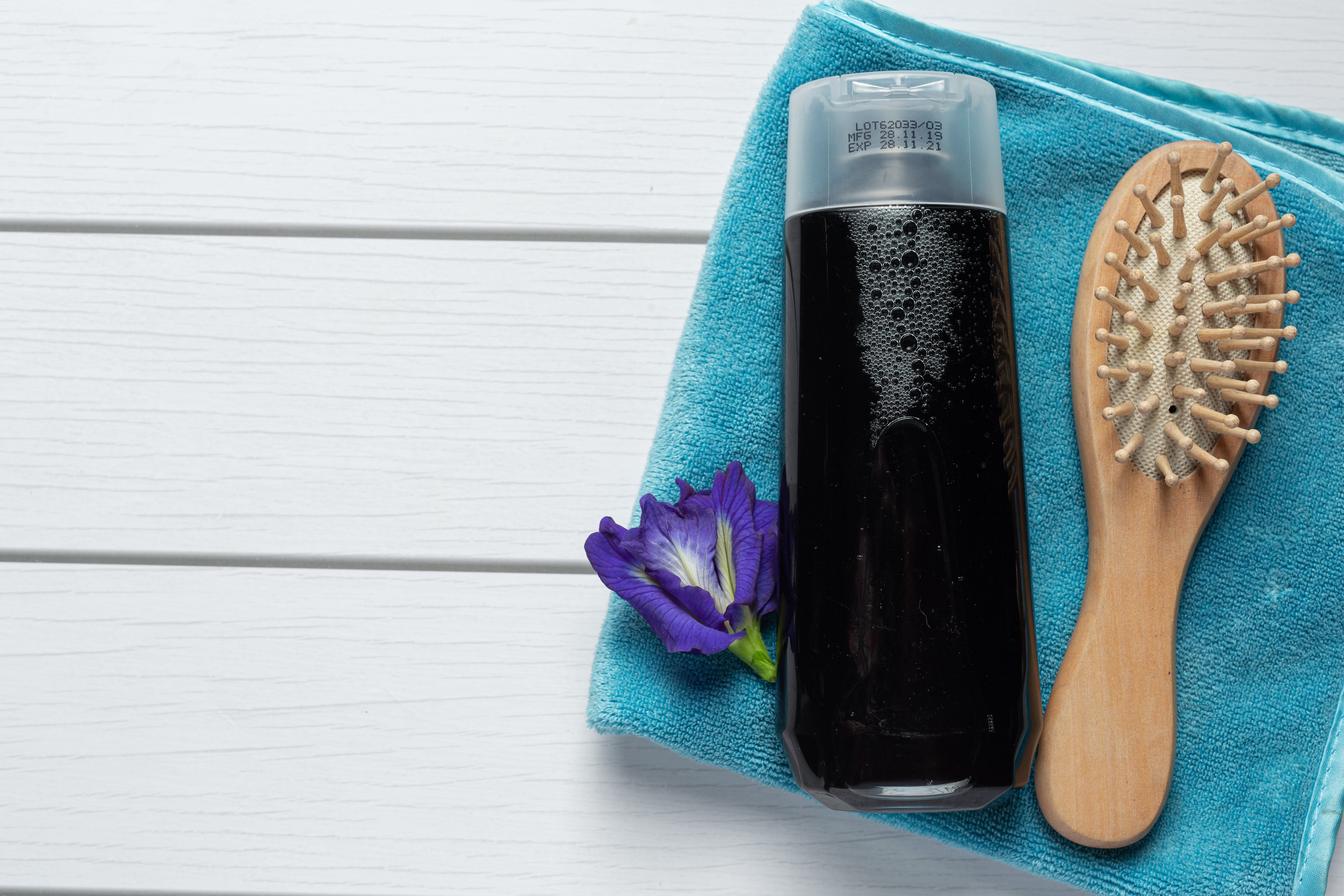Itchy scalps, irritating flakes, and frizzy strands - do they sound familiar? These are common hair-related issues. They don’t appear overnight, like some uninvited guests. Environmental factors, product build-up, poor hair care habits, and hormonal imbalances can lead to breakage, a dry scalp, and, of course, persistent dandruff.
Surely, using a regular shampoo can be a great choice for general cleansing, but not every time. Commercial haircare products can address deeper scalp issues. You need a targeted solution to address such problems. Yes, we are talking about a plant-based herb extract in a natural anti-dandruff shampoo here.
Let’s break down some of the key differences between regular and anti-dandruff shampoos so that you can choose the best option for your scalp’s specific needs.
What is Regular Shampoo?
Regular shampoos are sulfate-based, laboratory-created, and primarily designed to clean hair, remove dirt, extract excess oil, and product buildup. From color-protecting to volumizing and moisturizing, regular shampoo comes in a wide variety of formulas. However, not every time do such chemical-infused shampoos address one of the most prevalent scalp concerns, i.e., dandruff.
A natural shampoo with gentle ingredients can be a good alternative for daily use, especially for people with sensitive or itchy scalps. People these days are leaning towards natural, chemical-free shampoos to avoid harsh detergents, including sulfates and parabens. These organic shampoos cleanse without stripping the scalp’s natural oils, ideally supporting the maintenance of healthy strands.
Everything to Know About Anti-Dandruff Shampoo
An anti-dandruff shampoo is mainly formulated to soothe an itchy scalp and target dandruff. But they can be created differently. For instance, some contain synthetic chemicals, including Zinc pyrithione, coal tar, Ketoconazole, sulfur, and Salicylic acid. In contrast, natural anti-dandruff shampoos contain organic ingredients, including neem, aloe vera, tea tree oil, rosemary extract, apple cider vinegar, chamomile, and calendula. These plant-based herb extracts help fight flakes by restoring scalp balance. Besides, they deep cleanse the scalp without stripping away moisture. These chemical-free ingredients soothe the scalp and reduce inflammation.
The best thing about a good shampoo for dandruff is that it addresses all the underlying issues, including chronic dryness, excessive sebum production, and fungal overgrowth. That’s why using organic anti-dandruff shampoo is preferable for individuals with a sensitive scalp or excess product buildup.
If a regular shampoo is not a perfect fit for your scalp, consider switching to a dandruff shampoo for persistent flaking, as plant-derived botanicals can effectively address hair-related issues without causing further damage.
Whether you're looking for dermatologist-recommended options or a soothing, moisturizing shampoo for natural hair, the key is to check the ingredients and consider your personal preferences for long-term relief.
Benefits of Natural Anti-Dandruff Shampoo
Natural shampoos are gaining massive recognition globally for good reasons. Chemical-free shampoo with botanical extracts and essential oils to gently clear dandruff without stripping the scalp’s natural moisture. From supporting overall hair health to promoting sustainability, scalp-friendly shampoos offer significant benefits in the long run.
Here are some benefits of natural shampoo.
-
Gentler on sensitive and irritated scalps.
-
Safer for color-treated hair.
-
Ingredients such as aloe vera, tea tree, and rosemary extract accelerate the hair growth process.
-
Long-term scalp balance instead of a quick fix
Compared to synthetic hair shampoos, natural shampoos for moisturizing hair may not ensure immediate results, but they nourish and protect hair in the long run.
Reasons to Use Organic Anti-Dandruff Shampoo
If persistent yellowish or white flakes or an itchy scalp irritate you, consider switching to a non-toxic anti-dandruff shampoo. You can choose the best shampoo for dry flaky scalp, dandruff shampoo for women, or the best dandruff shampoo for colored hair, depending on your specific needs.
When to Use Hydrating or Moisturizing Shampoo?
Using a moisturizing shampoo for a dry scalp or a scalp hydrating shampoo, especially in winter, nourishes your hair and balances moisture without clogging pores. Choose a scalp moisturizing shampoo or hydrating shampoo for a dry scalp after carefully reading the labels and all ingredients.
Some people also prefer a combination of the best shampoo and conditioner for dandruff for a holistic approach. Pairing conditioner with hair shampoo for dry scalp locks helps hydrate and boost overall scalp health.
Bottom Line
Whether you are using a regular moisturizing shampoo or an anti-dandruff shampoo for scalp protection, it's essential to understand your scalp’s needs adequately. Choosing organic, scalp-friendly shampoo ensures long-term hair health and proper nourishment.
FAQs: Everything to Know About Anti-Dandruff Shampoo
What shampoo works best for dandruff?
Depending on your scalp type and hair condition, shampoo contains ingredients like aloe vera, tea tree oil, and other plant-extracted herbs that work best for dandruff.
What is the best product for dandruff?
Products that treat the scalp while maintaining the pH balance are perfect. Herbal or organic options can soothe the scalp and reduce dandruff.
Which shampoo is better for dandruff?
Choose a shampoo that treats flaky scalp, excess oil, and scalp irritation all in one.
What is best for dandruff?
Consistent scalp care and using the right treatment shampoo can reduce flakes and improve scalp health.
What shampoo is suitable for a dry scalp and dandruff?
Switching to a hydrating shampoo for dry scalp with anti-dandruff benefits addresses both issues effectively.
What is the number 1 dandruff shampoo?
Choices and rankings vary. Dermatologically approved organic herbal shampoo is everyone’s preference these days.
Which brand shampoo is best for dandruff?
Brands that focus on chemical-free, organic shampoo manufacturing are gaining more recognition.






